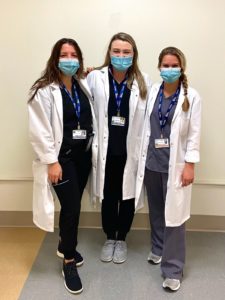How often does your SNF look at the impact of each discipline before a case mix window opens? Too often, speech therapy’s potential to make an impact on case mix index is overlooked.
The following represents an outline of the four overarching themes that Speech Therapy should regularly examine for each resident, especially during Case Mix window.
Communicate: I often joke about who our best friends are in the facility. It is usually a “three-way tie” between nursing, dietary and MDS. Let’s just say it is the MDS coordinator. The MDS coordinator has key information on the upcoming Assessment Reference Date (and corresponding look back period) for resident’s annual or quarterly MDS.
This information is crucial to us as speech language pathologists because it allows us the opportunity to assess the resident’s current plan of care. This information needs to be disseminated with enough time to assess the resident and implement a plan of treatment.
Review: The MDS is a time for the entire team to review a resident’s care plan. The SLP should be focusing on the following areas:
- Is the resident on the correct diet? This means least restrictive while reducing the risk of aspiration and choking.
- Does the resident have adequate supervision to reduce that risk of aspiration and choking? Speech should look at pacing and safety awareness abilities?
- Is the resident able communicate for purposes of medical needs and wants?
- Is the resident experiencing any cognitive decline and becoming unable to understand the medical plans implemented?
Looking at the Entire Person: Speech Therapy often looks at the person “from the neck up.” However let’s make certain the rest of the person is being assessed as well. While we are assessing swallow function, it is up to occupational therapy to assess if the resident can bring food and fluids from the table to their mouth in a functional manner. Physical therapy also tests the patient’s mobility. We are a collective team, each bringing its own unique perspective, to give support to the resident.
Looking at residents that are NPO: One area we find overlooked in skilled nursing is the re-assessment of residents who are currently not eating by mouth (NPO). We often find when we walk into a new facility that residents have been diagnosed with a severe dysphagia placed on a PEG tube for nutrition and hydration. Too many of these residents stay that way indefinitely.
There are several reasons to continuously look at these residents. First, we want to assess if there has been any spontaneous recover, are they more awake, alert able to follow directions etc. Secondly, there may be new procedures, treatments or strategies that were unavailable prior. Lastly, it’s the right thing to do, as these people are under our care we have a responsibility to assess individuals’ who are NPO to provide appropriate care.
By doing these 4 things on a consistent basis, I think you’ll see the significant impact Speech Therapy can have on your long-term care population and on your building’s Case Mix Index. If you have any questions or would like to talk, I’d love to hear from you.




I’m impressed, I must say. Actually not often do I encounter a weblog that’s each educative and entertaining, and let me inform you, you will have hit the nail on the head. Your thought is outstanding; the difficulty is one thing that not enough individuals are talking intelligently about. I am very pleased that I stumbled across this in my seek for something relating to this.